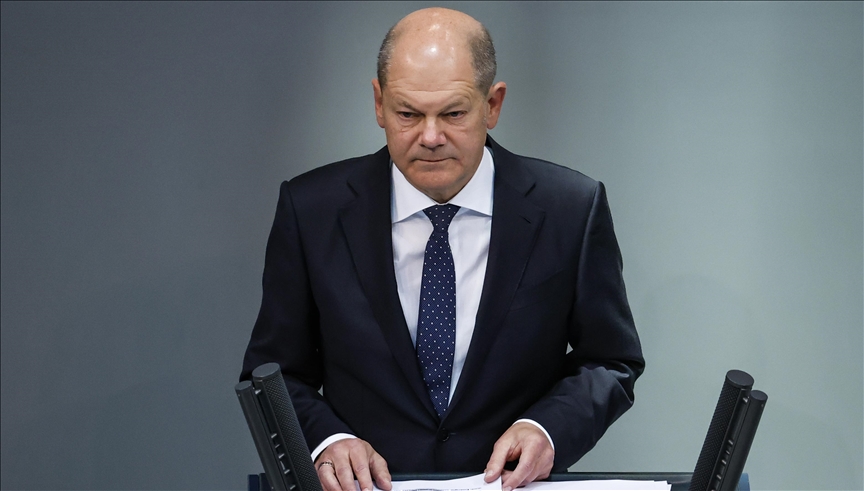
BERLIN
German Chancellor Olaf Scholz on Wednesday announced a change of course towards China only hours before his first-ever visit to Beijing since taking office a year ago.
In an article for the Frankfurter Allgemeine Zeitung newspaper, Scholz said that the outcome of the Chinese Communist Party congress two weeks ago convinced him that a change of policy toward China was necessary.
The commitment to Marxism-Leninism has taken up much more space than at previous party congresses, he said, adding that striving for the stability of the communist system and national autonomy will become more important in the future.
"It is clear that if China changes, the way we deal with China must also change," stressed Scholz, who is departing on Thursday for an eleven-hour visit to Beijing where he will meet President Xi Jinping.
Scholz will be the first Western head of government in Beijing since Xi's reelection as Communist party leader.
The German chancellor made clear that he did not want to ignore "difficult issues" in his talks with Chinese leadership.
"This includes respect for civil and political liberties and the rights of ethnic minorities, for example in Xinjiang province," Scholz said.
He also expressed concern about the tense situation around Taiwan.
"Like the US and many other countries, we are pursuing a 'One China' policy. But this means that the status quo can only be changed peacefully and by mutual consent," Scholz added.
China regards Taiwan, which has a population of 23 million, as its "breakaway province" and firmly rejects official contacts from other countries to Taipei. Taiwan, on the other hand, has considered itself independent since 1949.
There had reportedly been disagreements emerging within the German Social Democrat-led coalition government over ties with China, with the Greens pushing for a tougher line.
On Tuesday, German Foreign Minister Annalena Baerbock said during a visit to Uzbekistan that Scholz "has decided the timing of his trip," adding: "Now it's crucial to make the messages that we set together in the coalition agreement, the messages that I also brought here to Central Asia, clear in China as well."
The Green Party politician called for a tougher stance on China. It is crucial, Baerbock said, to make clear to Beijing "that the issue of fair competitive conditions, that the issue of human rights, and the issue of recognition of international law is our basis for international cooperation."
Scholz last month pushed through a compromise for China's investment bid for a container terminal in the Port of Hamburg despite strong objections from his junior coalition partners – the Greens and Free Democratic Party (FDP).
Baerbock emphasized that after the experience of over-relying economically on Russia, Germany should no longer make itself dependent on any country "that does not share our values." Such mistakes should not be made twice, she said.
Economic dependency makes Germany "politically blackmailable," she told the Munich-based Süddeutsche Zeitung newspaper, when it comes to dealing with China.
"It's not about complete decoupling, which is not possible in one of the largest countries, but opening up alternative markets in Asia, diversification and risk management,” added Baerbock.
Anadolu Agency website contains only a portion of the news stories offered to subscribers in the AA News Broadcasting System (HAS), and in summarized form. Please contact us for subscription options.







